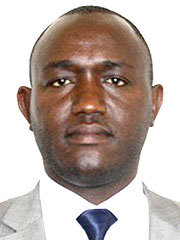In East African Community, the integration process began with the Partner States signing and acceding to the EAC Treaty, after which a number of protocols have since been signed. Directives and decisions have also been adopted by the Summit of Heads of State and the Council of Ministers.


In East African Community, the integration process began with the Partner States signing and acceding to the EAC Treaty, after which a number of protocols have since been signed.
Directives and decisions have also been adopted by the Summit of Heads of State and the Council of Ministers.
However, all these need to be mainstreamed in our respective national development strategies and plans before they can bear the intended fruits.
Various countries have been mainstreaming specific sectors in national development strategies and plans such as gender, HIV/Aids, trade, environment, climate change, among others, and this has given chance to define mainstreaming in each specific sector.
But mainstreaming regional integration is generally new and information-limited.
Nonetheless, mainstreaming regional integration into national development strategies and plans is defined as integrating regional integration decisions/developments/programmes into national planning process and their outputs such us poverty reduction strategy papers, MDGs, peace and security.
The process involves translating strategies into commitments backed by explicit targets which are fully costed with monitorable indicators of inputs, outputs, and outcomes, and articulating them in a sustained and effective manner in the medium term expenditure frameworks and national budgets.
There are a number of reasons why EAC Partner States should engage themselves in the process of mainstreaming regional integration in national development strategies and plans.
These include effective implementation of activities and programmes agreed at both the EAC and national levels since they all require financial and human resources and are aimed at addressing similar objectives.
Mainstreaming regional integration is key in promoting regional integration agenda for EAC to achieve its vision of being prosperous, competitive, secure, stable and politically united.
Domestication of activities, decisions and protocols of regional integration, will no doubt contribute to overall agenda of economic growth, poverty alleviation and social economic development.
In addition to this, mainstreaming regional integration will raise awareness and buy in of decisions, protocols and programmes adopted at the EAC level.
This is because mainstreaming process requires active participation of a wide range of actors at all levels.
Key implementers of activities, programmes and decisions at the national level often lack the knowledge of the agreed decisions because they are not all involved in planning and negotiation process and, finally, enhancing and complementing national development plans.
What our respective Partner States need so as to successfully mainstream regional integration is budget allocation to programmes of mainstreaming since it is inevitable that this will come with a cost, aligning regional integration goals with national ones, adequate human resource capacity, and appropriate monitoring mechanisms.
However, this does not mean that EAC Partner States may find a smooth way in domesticating regional integration decisions and protocols.
Some challenges may at any point in time be met; resources, both financial and human, may be inadequate, poor coordination of activities at national level and sometimes lack of commitment to make this a priority.
It is equally true that some may have a framework but having a framework is one thing and making it functional is another.
Finally, efforts to accelerate the process of mainstreaming, it is suggested, that EAC Partner States should be advised to properly sequence the following stages;
Formulation and adoption of decisions, coordination of consultations process among key Ministries and Stakeholders, commitment to domesticate agreed protocols in national strategies and plans, accepting to allocate resources and implementation of programmes, and, last but not least, monitoring and evaluating the progress.
The writer is the Head of Economic and Productive Sectors at the Ministry of EAC Affairs –Rwanda.


